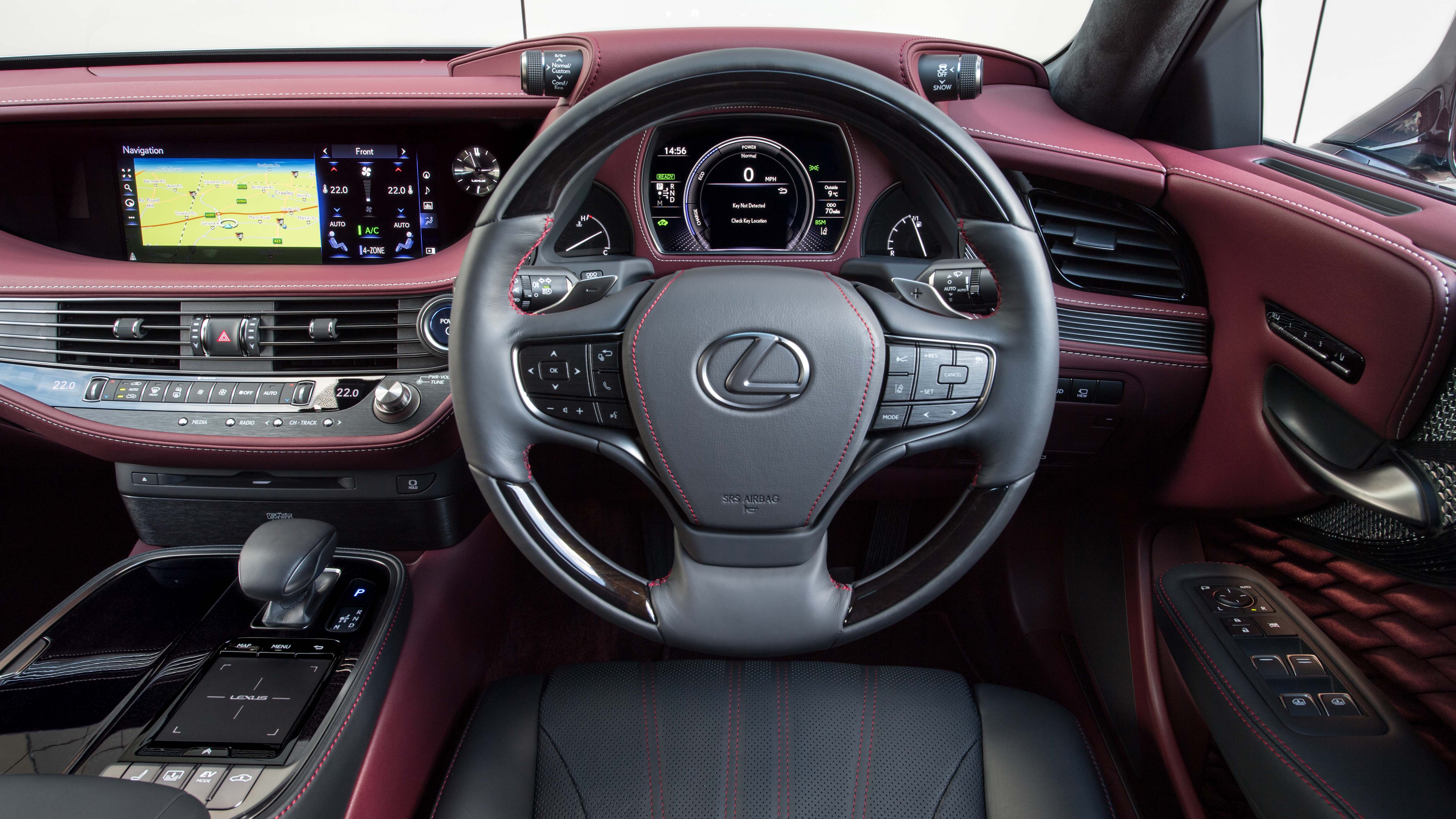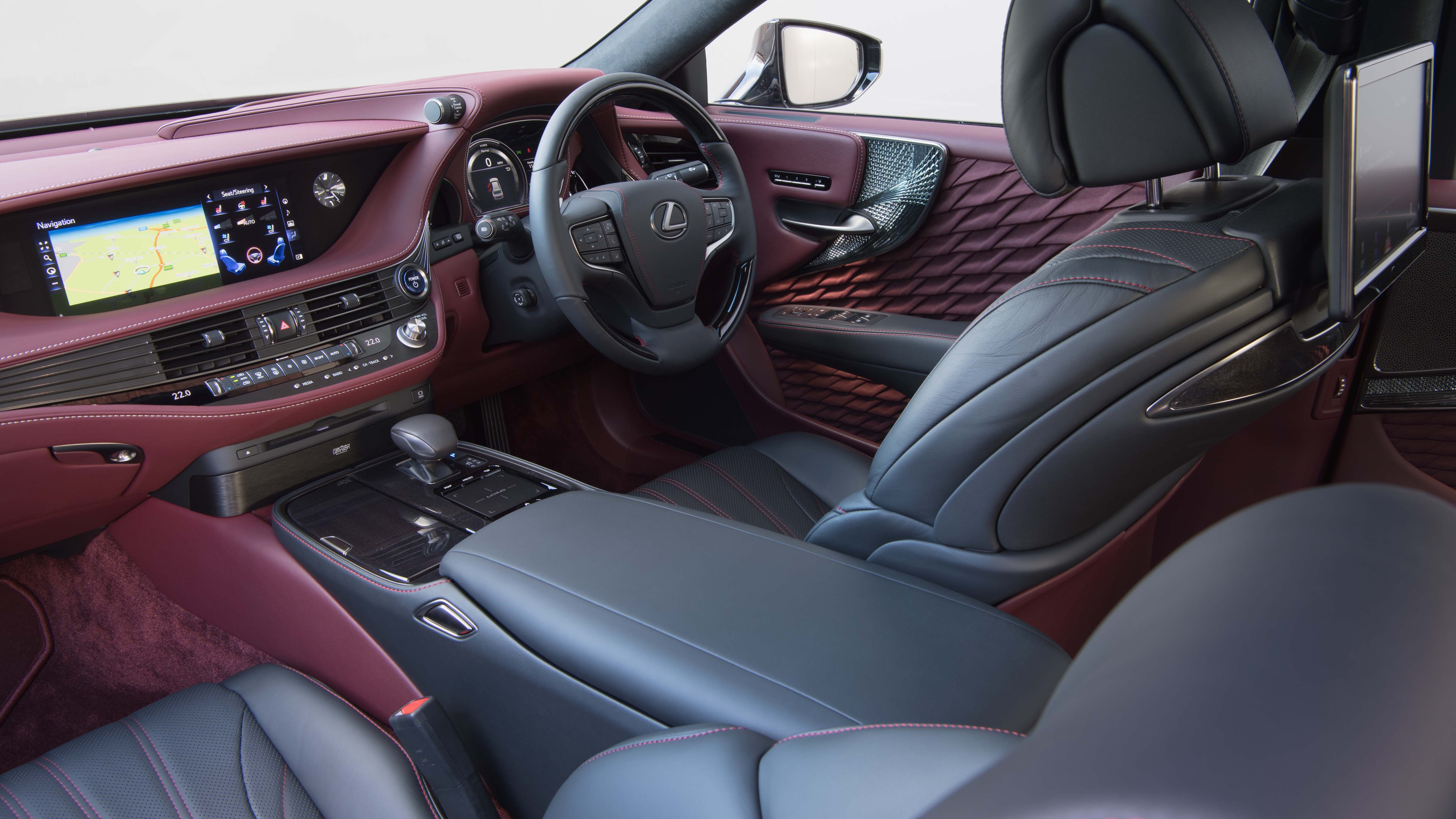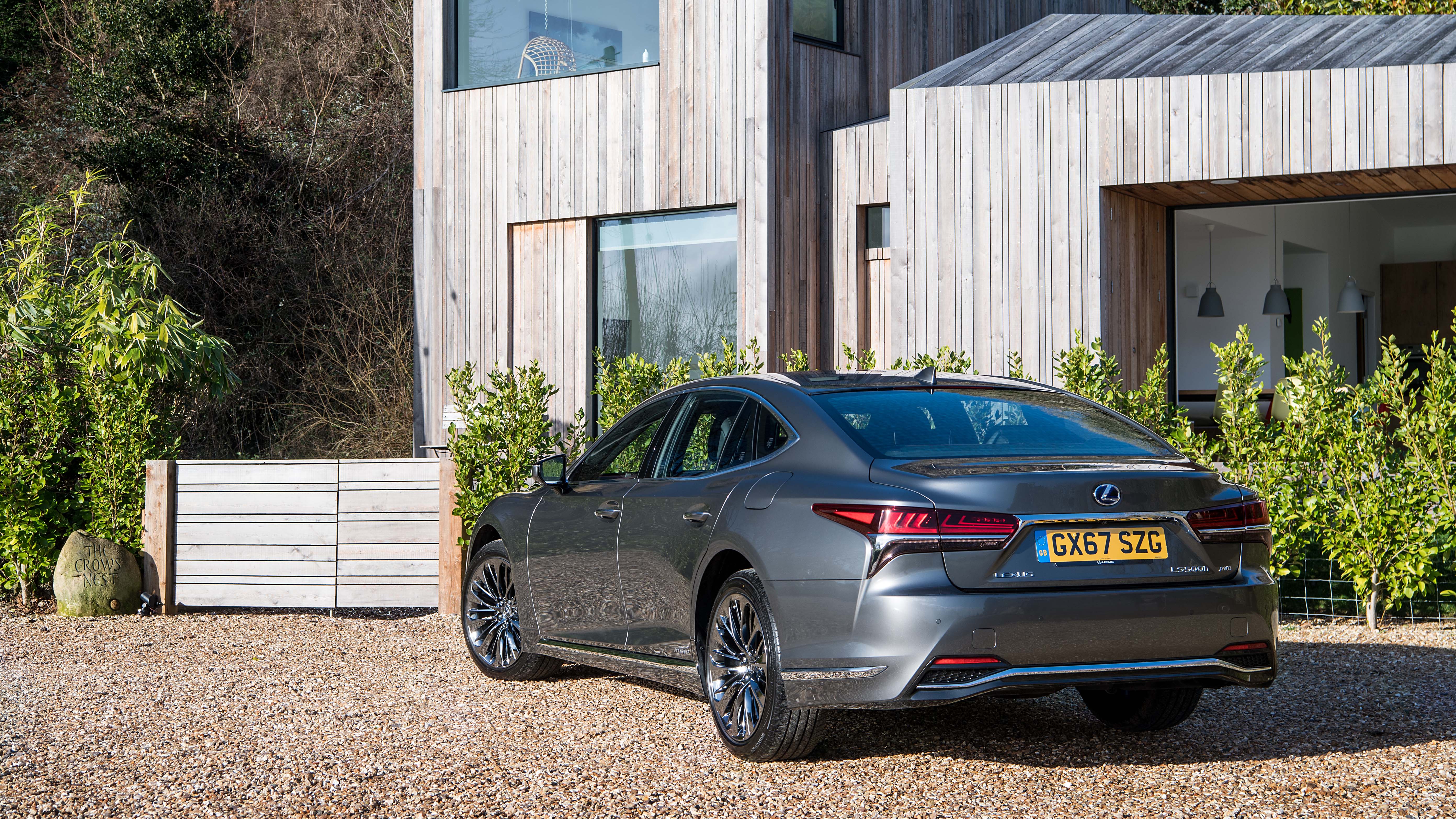
Buying
What should I be paying?
Claimed economy of 43.5mpg and 147g/km just about lines up on the real-world economy of a diesel luxo-barge from the Mercedes, BMW or Audi stables, but even if your tax bill is pegged at £205 for year one, real-world fuel consumption certainly won’t top 30mpg – more like 27mpg, we’ve found.
That’s small change compared to depreciation, mind. All big barges lose value like yesterday’s chip paper, but even though Lexus will shift fewer than 100 per year in the UK, it’ll struggle to retain 50 per cent of its value in three years’ time. Spec carefully too – white paintwork and red leather might look gorgeous on the configurator, but it’ll be trickier to move on at the other end. Then again, who drops £70k-£100k on a car and worries most about the next owner?
You can choose from rear-wheel drive or all-wheel drive versions of the LS500h. Want the sure-footed sensation of all-wheel drive (even though there’s nowhere near enough power to justify it)? That’ll add 65kg to the kerbweight, £3,000 to the price, and sabotage your economy to the tune of 4mpg and 14g/km.
Spec-wise, there are four to choose from. The ‘base’ model is merely titled LS500h, and comes with 20-way multi-adjustable seats (heated and ventilated) and 12.3-inch infotainment. All LSs also benefit from a fleet of driver assistance aids, including lane-keep steering assist, fully active radar cruise control, and traffic sign reading.
Available in the top-grade Premier model is a world-first: pedestrian detection with steering assist, which will attempt to steer your car away from an errant jaywalker should the driver fail to.
Then there’s the F-Sport, which has subtly sterner bodystyling, and darkened 20-inch alloys, which suit European tastes more readily than the dark chrome finish of the £98k Premier specification.
Featured

Trending this week
- Car Review
BMW 1 Series






